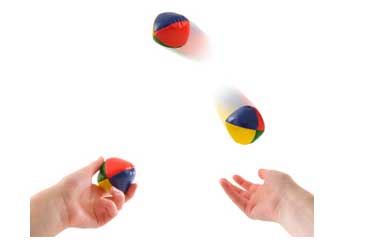|
|
| Correctional Officers – Multitasking and doing it right |
| By Carl ToersBijns, former deputy warden, ASPC Eyman, Florence AZ |
| Published: 07/21/2014 |
 There seems to be more and more emphasis on multitasking than ever before inside jails and prisons. One of the reasons is due to lack of staff available to get the job done but there are numerous other reasons beyond your control that cause you to work smarter not harder. The purpose of multitasking is to get as much done as possible while you are on shift. Is it practical or sensible to work on several different projects or task or is it better to perfect one at a time. This question is often asked and there are so many variable involved in the answer, it is difficult to say which is better under most situations.
There seems to be more and more emphasis on multitasking than ever before inside jails and prisons. One of the reasons is due to lack of staff available to get the job done but there are numerous other reasons beyond your control that cause you to work smarter not harder. The purpose of multitasking is to get as much done as possible while you are on shift. Is it practical or sensible to work on several different projects or task or is it better to perfect one at a time. This question is often asked and there are so many variable involved in the answer, it is difficult to say which is better under most situations.
The easiest way to determine which of the two you should prefer is to make a brief situational assessment and look at the pros and cons of each task assigned. Then being aware of these factors you must prioritize your tasks based on their clearly defined purposes or objectives. This is usually dictated by policies. Keeping realistic is the key to successful planning. Once you have been through this process a few times, you learn how to multitask better and do it with a greater efficiency than before. The best way to create a better process is to avoid any procrastination and taking the best approach how to begin or start each task in conjunction with the other responsibilities given. Always focus on moving forwards and not backwards. Keep you motion in a progressive stage so you don’t have to go back and do something all over again or touch it up a bit. Taking the most time consuming and difficult tasks first should be a consideration when doing the pros and cons list. Seeing the big picture helps you get it done better. At some point, you will learn how to do them simultaneously but to begin with you must prioritize and organize. Keep in mind that making mistakes could derail your progress and set you back so keep it tight and organized and ask for help if you need it. There are times when multitasking is just not practical and too risky. In those cases, pay attention to detail and complete the task thoroughly. Knowing which task is difficult or high risk adds to the decision making whether or not to multitask during your shift. Don’t be discouraged if other people do it better than you. Some can juggle more at a time than others but the important element is how well you do it and whether or not it was done in the manner desired by your guidelines while keeping you and others safe. Concentrating on safety should be your priority in all cases. Never compromise the safety or wellness of yourself or others. There are some tangible factors to consider. First if you are juggling multiple tasks are you trained for doing them effectively and do you possess the talent to do them right? Second, do you have enough hands to catch the balls you are attempting to juggle? Are some of those tasks items you have been assigned reasonable to delegate to someone else who you know can get it done? Multitasking is like a sport. Practice is a great advantage to doing something better and making it easier. Remember that when faced with difficult challenges to share those obstacles with others who also have the experience to handle such matters given to you while on shift. It never hurts to ask for help or tell your supervisors your learning curve has not yet reached that stage and allow them to make adjustments in job assignments. If it doesn’t feel right or if you don’t possess the skill set yet to do what you have been assigned you have a responsibility to tell your supervisors you need help with these duties. Being honest and straight forward may save your reputation as well as your job while keeping your co-workers and self safe. Corrections.com author, Carl ToersBijns, (retired), has worked in corrections for over 25 yrs He held positions of a Correctional Officer I, II, III [Captain] Chief of Security Mental Health Treatment Center – Program Director – Associate Warden - Deputy Warden of Administration & Operations. Carl’s prison philosophy is all about the safety of the public, staff and inmates, "I believe my strongest quality is that I create strategies that are practical, functional and cost effective." Other articles by ToersBijns: |



Comments:
No comments have been posted for this article.
Login to let us know what you think